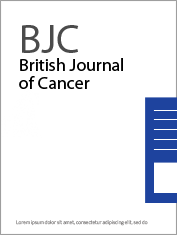2 points : les études contribuant, notamment pour les essais thérapeutiques, à l'apport d'un niveau de preuve A (méta-analyse ou essais randomisés de phase III portant sur un grand nombre de malades) ou B (essais randomisés à effectifs réduits (B1) ou études prospectives ou rétrospectives (B2);
3 points : les études susceptibles de modifier les pratiques.
Une actualisation des recommandations de l’ASCO pour les cancers bronchiques non à petites cellules de stade IV
septembre 2015
Ces recommandations récentes de l’ASCO sont assez proches des recommandations européennes. On y trouve néanmoins...
Lire la suite2 points : les études contribuant, notamment pour les essais thérapeutiques, à l'apport d'un niveau de preuve A (méta-analyse ou essais randomisés de phase III portant sur un grand nombre de malades) ou B (essais randomisés à effectifs réduits (B1) ou études prospectives ou rétrospectives (B2);
3 points : les études susceptibles de modifier les pratiques.
Le Tivantinib, un inhibiteur de c-MET associé à l’erlotinib chez les patients EGFR sauvages : une autre étude de phase III arrêtée prématurément.
octobre 2015
L’activation de c-MET a été observée dans les cancers bronchiques non à petites cellules indépendamment...
Lire la suite2 points : les études contribuant, notamment pour les essais thérapeutiques, à l'apport d'un niveau de preuve A (méta-analyse ou essais randomisés de phase III portant sur un grand nombre de malades) ou B (essais randomisés à effectifs réduits (B1) ou études prospectives ou rétrospectives (B2);
3 points : les études susceptibles de modifier les pratiques.
Le ganetespib dans une deuxième ligne randomisée en association au docetaxel
août 2015
La protéine de choc thermique Hsp90 est impliquée dans la dégradation des protéines anormales et...
Lire la suite2 points : les études contribuant, notamment pour les essais thérapeutiques, à l'apport d'un niveau de preuve A (méta-analyse ou essais randomisés de phase III portant sur un grand nombre de malades) ou B (essais randomisés à effectifs réduits (B1) ou études prospectives ou rétrospectives (B2);
3 points : les études susceptibles de modifier les pratiques.
Dans une étude randomisée de phase II de l ‘ECOG, le cixutumumab, un anti corps monoclonal dirigé contre l’IGFR, est toxique et inefficace dans les CBNPC.
juillet 2015
L’adjonction du cetuximab à la chimiothérapie des cancers bronchiques non à petites cellules de stade...
Lire la suite2 points : les études contribuant, notamment pour les essais thérapeutiques, à l'apport d'un niveau de preuve A (méta-analyse ou essais randomisés de phase III portant sur un grand nombre de malades) ou B (essais randomisés à effectifs réduits (B1) ou études prospectives ou rétrospectives (B2);
3 points : les études susceptibles de modifier les pratiques.
Le Necitumumab associé à la chimiothérapie prolonge significativement la survie des patients atteints de cancers épidermoïdes et traités par cisplatine et gemcitabine.
juillet 2015
Il y a 3 mois, nous commentions sur ce site les résultats de l’étude INSPIRE,...
Lire la suite

